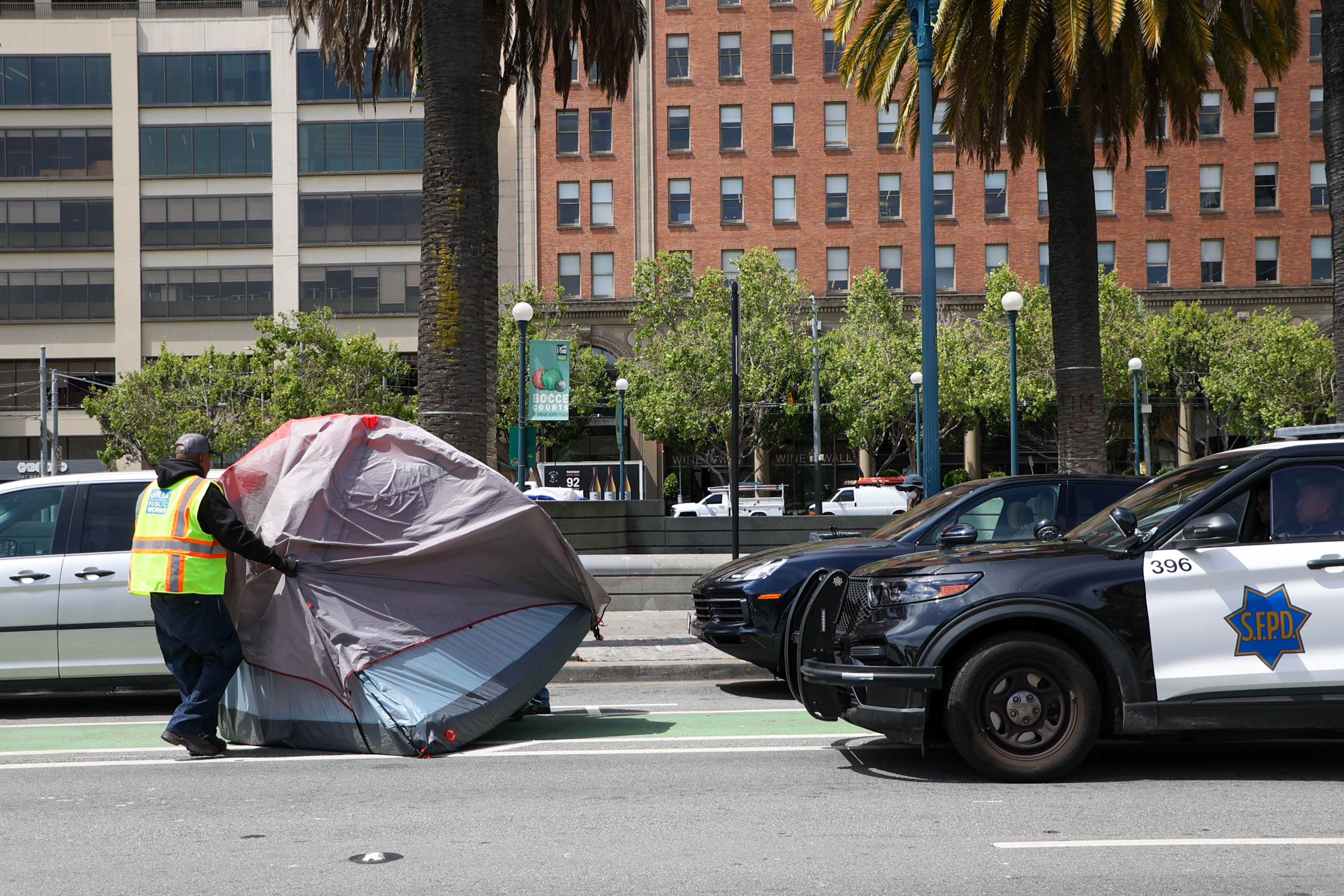Homeless people suing San Francisco saw a glimmer of hope during a Thursday court hearing to temporarily ban sweeps of homeless encampments.
U.S. Magistrate Judge Donna Ryu appeared sympathetic to plaintiffs’ arguments during the court hearing, saying that they had “veritable mountains of evidence.”
The hearing was part of a broader lawsuit filed in September by the Coalition on Homelessness and several unhoused people, alleging that the city breaks down encampments when there are not enough shelter beds available, which they argue violates the U.S. Constitution and the city’s own policies.
Ryu did not rule on the plaintiffs’ request for a temporary ban on sweeps during the hearing, and said that she would issue a written ruling, but did not say when.
If Ryu rules in favor of a ban, the city would not be allowed to clear tents or confiscate belongings of homeless people while the lawsuit plays out.
The city argued it is not violating the law because it offers shelter beds to people prior to sweeps taking place, and that the city “reasonably preserves the possessions” of unhoused people.
However, during the hearing, Ryu said, “There’s no way for a person to voluntarily try to access a [shelter] bed at this point in San Francisco,” and called it an “undisputed fact.”
During the hearing, the city admitted that there is no way for people to access shelter beds other than through the city’s outreach prior to a sweep.
“Except when offered in the outreach, in advance of an encampment resolution, yes,” Deputy City Attorney Jim Emery said.
Plaintiffs allege that sweeps can happen without warning, or before the time that a notice of a sweep is issued.
Ryu also criticized the city for not forming a more detailed opposition motion.
“There was no quantitative analysis offered by the defense,” Ryu said during the hearing.
In the lawsuit, plaintiffs refer to an analysis of city data by UCLA Professor Chris Herring, which found that between January and November the city did not have enough shelter beds to offer unhoused people affected by sweeps 82.4% percent of the time.
‘It’s traumatizing’
The suit also includes testimony from unhoused people who accuse the city of destroying their property during sweeps, making it harder to exit homelessness.
During a press conference prior to the hearing, people spoke about their experiences losing their belongings as a result of encampment sweeps.
“It’s traumatizing,” said Tricia Hurd, who has lived at the Derek Silva Apartments in San Francisco for nearly two years, but was unhoused for roughly six years before moving there.
Hurd said that while she was unhoused, the city confiscated pictures of her baby daughter, including pictures of her first steps, during a sweep.
“The pictures meant a lot to me. I lost them, and I can’t get them back,” Hurd said.
The lawsuit names a litany of city departments and leaders as defendants, including the San Francisco Police Department, the Department of Public Works, the Department of Homelessness and Supportive Housing, the fire department, the Department of Emergency Management, Mayor London Breed and Sam Dodge, director of the city’s Healthy Streets Operations Center.
The plaintiffs are represented by the Lawyers’ Committee for Civil Rights of the San Francisco Bay Area, the ACLU Foundation of Northern California and the private firm Latham & Watkins.
During the hearing, Emery disputed the findings by Herring that the city’s policies are not being followed. He suggested that people are relocating ahead of sweeps and that items left behind are being disposed of in accordance with city policy.
In an email statement provided to The Standard, the City Attorney’s Office said SF’s ultimate goal in addressing the homelessness crisis is through securing permanent housing.
The city has also filed a motion to dismiss the case outright, which is expected to be heard by the court Jan. 12.
